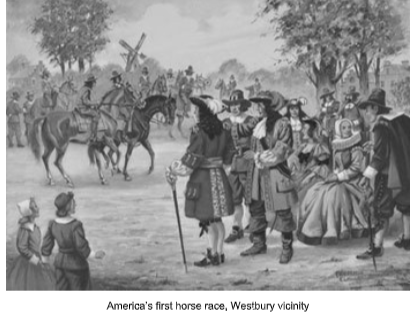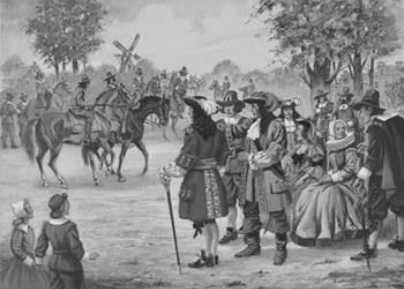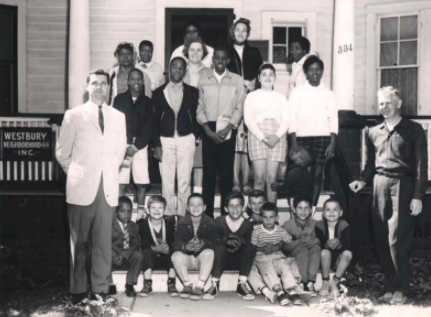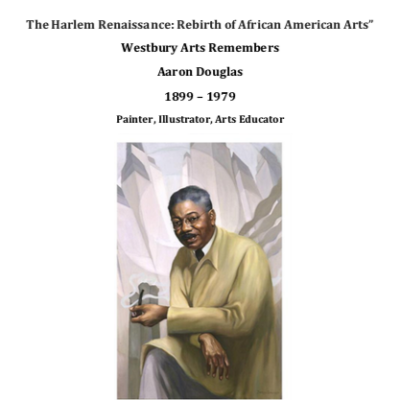Author: Arthur Dobrin
Following the War for Independence, a Hessian sharpshooter chose not to return to Germany. His home was near mine, a reasonable assumption since there are no
records indicating where in Westbury Hessians settled after
the Revolution.
Hesse-Cassel
If not for Frederick II’s’ reforms, the newborn most likely
would have been a victim of infanticide. His mother would
have been one of the hundreds of unwed mothers that chose
to kill their babies rather than face life-long shame and also
be subject to the dire economic conditions that roiled the
principality of Hesse-Cassel after the Seven Years War.
When the prince ascended to landgrave of Hesse-
Cassel, he instituted reforms inspired by the Enlightenment.
Linking rationalist philosophy with the belief that rulers had a
2
moral obligation to provide for the happiness and welfare of
their people, he reduced taxes and fines, shortened prison
terms so they didn’t destroy an individual’s livelihood and
converted prisons and poorhouses into workhouses in which
trades were taught. The landgrave also provided public
employment by mustering a standing army, which then could
be rented out to foreign powers for cash payments.
Singularly important to this newborn’s well-being was
the creation of a foundling home. This innovation was disliked
by many who saw the home as an enticement to
waywardness by relieving unwed women of the burden of
their illegitimate infants. An unwed mother should be drowned
as had been done for centuries, they said.
Frederick II, however, believed that it was the shame
and dishonor attached to a pregnancy that drove poor unwed
mothers to infanticide. Foundling homes were a humane
measure for both mother and child. And so the first founding
hospital in all the German states was opened in Hesse-
Cassel.
Frederick’s final argument for the new institution
mollified some of the populace.
“These children are those young plants the state can
make good use of for its future population. Nothing is more
valuable to the state than the birth of another child, for
happiness is dependent upon a large population.” More labor
means higher production, he said. This leads to a strong
economy through increased exports and lowered taxes.
One night a woman anonymously put a newborn in the
revolving box in the foundling home wall, turned the table until
the infant disappeared on the other side. Her identity was
never revealed.
3
Newborns were kept for a day, then taken by women
paid a subsidy by the state to wet nurse them and keep them
for few years. Because the relationship wasn’t based on
parental attachment, foundlings were often treated badly.
This child was lucky.
Johann and Marta Dettmars’ three girls had died, the
most recent in infancy. The couple were glad not only to
receive the fee to supplement their paltry income derived
from farming but found they had a natural affection for the
quiet child. They named him Heinrich, baptized him,
disciplined him lightly and taught him basic household and
farming skills. Heinrich was grateful for the home he had
been given and so was bewildered when four years later
when the Dettmars returned him to the state’s care, their
contract having expired.
Separated from the husband and wife, fresh air, the
rhythms of nature, hunting and farming, Heinrich felt
disconsolate and his natural quietness deepened into dark
silence. The rigid schedule of the orphanage workhouse, the
ceaseless sewing of clothing, the lint-filled windowless room
conspired to make memories of the farmstead sweeter and
life at the institution more painful. He did what was expected
of him, yet many times for minor infractions he felt the
discipline of the rod on his arms and back. Each night he
dreamed of the sweeter life he once knew.
Heinrich remained without friends. When he was ten-
years-old, Heinrich ran away with a biscuit in his pocket
during harvest time, foraged for nuts and berries, stole
vegetables from fields eventually finding his way through
meadows and the forested hills to the place he remembered.
4
Johann Dettmar discovered the boy asleep against a hay
pile.
“You! Get up! Who are you?” the farmer demanded, not
recognizing the older boy whose folded arm partially covered
his face. Dettmar stood above Heinrich with his hunting dog
beside him.
Heinrich woke with a start. Seeing the gun cradled in the
farmer’s arm, he jumped to his feet, bolted and came to a
stop as the dog sniffed at his feet. Afraid to move, Heinrich
cowered as Dettmar approached him.
“Where’re you from?”
Heinrich pointed to the ground.
Gaining his courage, Heinrich stammered, “Here.”
“Heinrich it’s you. Come.”
The farmer wrapped a burlap sack around the shivering
boy’s body and walked with him to the cottage.
Heinrich thrived at the farmstead and grew well-fitted for
the rugged area bounded by deep forests filled with bears,
deer and brown-haired boars. He learned how to smoke
sausages and enjoyed forming sour milk cheese with his
hand; Johann taught Heinrich to enjoy the handkäse with
apple wine. Mostly he found solace grooming the farmer’s
draught horse, a broad-shouldered gelding.
Between planting and sowing seasons, Heinrich hunted
in the forest with his patron. At fifteen, he volunteered for the
militia, which was active only for a short while during the
summer.
While preserved vegetables and dried meats carried
them through two harsh seasons of crop failures, hunger and
disease spread through Germany. The vaccine given to
Heinrich as an experiment at the foundling home spared his
5
life. The disease killed Marta and left Johann partially blind
and badly scarred face.
The English campaign in America proved a boon for
Hesse-Cassel. Princes had been leasing trained troops to
Europe’s powers for over a century, but the rebellion of the
American colonies required greater numbers of troops than
England had ever needed. Heinrich would have been
exempt from conscription if he had been Johann’s son and
not his ward or if Johann had made him heir in his will, which
he had neglected to do. Despite the hardship Heinrich’s
absence would cause Johann, the young man was drafted
and began military training.
Because Heinrich was adept with a gun, he was
assigned to a company of sharpshooters. The specialized
troops drilled in their green jackets with crimson facing and
carried short-barreled rifles without bayonets. For his elite
service as a jäger, Heinrich received additional pay and a
bounty, an arrangement that caused resentment on the part
of the regular soldiers but helped his unease in leaving
Johann. His salary would support the widowed farmer.
Training complete, the conscripts boarded river boats to
take them to the sea. Accustomed to village and farm life,
sleeping in cramped quarters and nauseated by strange
smells, the soldiers, contrary to orders to stay onboard when
they were moored, debarked and gathered on the
embankment. They confronted their officers with their
complains. Threats of lashes didn’t faze them as they listed
their grievances. They refused to return to the boats until
their demands were met.
While the soldiers remonstrated with the officers,
Heinrich, with the other the jägers, held himself apart. They
6
had taken a pledge to be true to their prince. None would
violate their oaths by joining the insurrection.
The officers consulted amongst themselves for some
time, then returned to the unruly group.
“I’ve told the wagon master the men need better victuals,”
the colonel in charged announced. “I’ve ordered him to take
his wagons to the city. Get provisions for the men today and
enough for the rest of the month. Bring back bread and meat
for everyone.”
“And wine!” one of rebellious soldiers interjected. “There
is good wine in this country! Get wine. We want to have wine
with our bread.”
Others cheered him on.
“The wine is good,” agreed the colonel. “We’ll bring back
enough for everyone.”
Heinrich was bothered by the officer’s capitulation. He
had never seen such weakness before.
The demands continued.
“We need wood! Let us cook!”
Again, the colonel nodded in agreement.
The wagon returned with a plentiful supply of food and
several barrels of wine from the vineyard in the river valley.
The wine altered the soldiers’ mood but not in the way
anticipated. Unused to the high concentration of alcohol
found in wine, the soldiers’ heads swirled. With each drained
cask, inhibitions lessened while the auxiliaries’’ ire
increased. They refused to board the ships once again.
Instead, they made clear they had no intention of sailing
across the ocean.
The jäger company was ordered to take to the heights
above the river and to fire warning shots to keep the
7
rebellious soldiers from deserting. Some soldiers returned
the riflemen’s fire, but their weapons were ineffective at long
range. Over the course of the hours-long uprising, Heinrich
wounded two soldiers.
As the headiness of the wine sore off, the men regained
their senses. The rebellion had run its course. Minus forty
who had run off in the melee, the militia returned to their
boats to continue down the river.
At Sea
All the men were boarded on the single sea-worthy ship that
awaited them at the port. Although as cramped as they were
on the river boats, there was no protest. The grousing they
kept to themselves. They were relieved to find that at
Portsmouth an additional ship waited. From England’s south
coast the collection of auxiliaries, now from many German
states, embarked on an ocean voyage to America on ships
flying the English flag.
Rations were more meager for the Germans than the
British. Five soldiers shared a daily ration of four pounds of
bread and four pints of beer. Throughout the week they
received small portions of beef and pork, peas, oatmeal,
flour, cheese, raisins and, on Sundays, suet pudding.
On clear days, Hessian soldiers and crew members
brought their bedding on deck for airing. Heinrich attempted
to find a spot to lay down his mattress, but the soldiers, still
angered from the incident on the embankment, wouldn’t
make room for any jäger’s belongings. This was part of the
distance kept between the soldiers and the sharpshooters.
Conversation was kept to necessities and when the other
8
Germans exercised on deck, the sharpshooters stayed to
themselves, sloughing off the shunning. Heinrich conjured
up the pride he had in his green uniform and superior
weapon.
As Heinrich leaned against his mattress propped against
the ship’s bulwark, a moment of doubt took hold. Wounding
another German did seem like a betrayal of his countrymen.
True to his prince.
The oath he swore to Frederick II came to him as if
spoken directly by the landgrave himself. Heinrich shook off
his misgivings. He had virtuously served his prince and
scorned those who had exhibited disloyalty. There would be
a place of esteem for him in the society of men when he
returned to Hesse-Cassel.
The Hessians he wounded deserved their fate. He could
have killed them.
Heinrich glared at one of the privates as he ate his
prunes.
Tobacco, libations, food and water was enough for all on
board at first, but after a few weeks at sea the water in the
barrels turned foul with small worms. About mid-way across
the Great Ocean, the Claudina, encountered strong waves.
The river hadn’t prepared them for this. The Germans
couldn’t keep food down. The crew taught the Germans to
drink small handfuls of ocean water each week to expel
impurities in the body that can cause seasickness.
Just when they got used to being at sea, the wind
shifted, bringing a storm from north that threw angry waves
over the deck.
“We are being swallowed up by a monster!” a soldier
cried as the ferocious gales pounded the fleet.
9
Wave after wave washed over the ship and smashed the
soldiers’ cabins.
“Goddamn me! This isn’t a serious storm,” a sailor said
to Heinrich who was beginning to catch some of the English
chatter. “Better ones are yet to come. Goddamn my soul,
you should call out, ‘More wind, more wind, very good wind.’
We want a good storm for sailing, goddamn me.”
As madly as the wind had blown, the lull that followed
was silent. Sails luffed during calm and sunny days followed,
stretching the transporting longer than any wanted. Having
left in early April, they had planned on participating in the
summer campaign. It was late May and still no land in sight.
Heinrich’s ears were better than his tongue. Whenever
he tried to speak to an Englishman, the words stuck to his
tongue until he gave up trying to speak to them at all.
Clement conditions allowed them to reach Canada. From
there they set sail to the rebellious colonies. However, the
benign conditions proved deceitful, as calm winds and
contrary currents made this the most difficult part of the
journey. Rations ran low during the slow going. Drinking
water was even more foul, biscuits turned moldy, beer,
cheese and butter were gone. Scurvy brought the men low
and they suffered from rashes and burns; their legs swelled
red and tender to the touch. Rats gnawed through clothing,
cordage, sails, barrels and devoured the last of the scant
provisions.
New-York
At last Sandy Hook and the New Jersey shore.
“It’s a new life,” the commanding officer said, as he had
the sick brought from below to hearten their spirits.
10
Heinrich couldn’t imagine Columbus any happier than he
was now setting sight upon America.
The day the ships sailed through the Narrows a storm
sent streaks of lightning across the black sky and rolling
thunder louder than cannons. German auxiliaries and
English crew debarked in the drenching rain, exhausted and
hungry. They joined the British encampment in Manhattan.
The English army commanders, eager to get the
Hessians ready for battle, provided them with food and
accommodations superior to that of their own forces, while
the Hessians simply delighted in being freed from the
confines of tossed and rolling ships. Despite the extensive
support given to them, unaccustomed to the American
climate, fevers and diarrhea struck regiments of auxiliaries.
Somehow the maladies spared Heinrich.
As a jäger, the officers granted Heinrich freedom to make
many of his own decisions. The self-reliance that a
sharpshooter had acquired as a huntsman was prized by the
Hessian military, so Heinrich left camp to examine the
terrain. While plans were discussed for the assault against
Washington and his army across the East River, Heinrich
ambled through Staten Island, captivated by the panorama
spread before him—a river broader than any he had ever
seen, small and large islands with trees, barren rocks,
sandbars, gulls feasting on a thousand fish. An eagle flew off
with a large fish in its mouth. He forded streams, and tasted
water from a salty marsh and drank fresh pond water.
As he passed an orchard, Heinrich stuffed his pockets
with small, gnarly apples. He sat on a hill, ate what he had
gathered. He refilled his pockets with apples twisted from a
branch, a half-dozen pippins that reminded him of home.
11
How long will it before he can taste apelwein again, he
wondered.
The greatest surprise was finding many horses in a
meadow. They took no notice of him as they ran free.
Heinrich opened his sack and held an apple in his palm. He
gently patted the bay as it took the fruit.
Later he shot a red fox for sport and a rabbit for the
evening meal. He picked a berry, licked it and tossed it to the
ground, uncertain whether was poison or safe.
More than ever, Heinrich was proud of being a jäger
Thinking about the rebels across The Narrows, his righteous
anger against Americans grew. The thought of taking up
arms against your sovereign was sacrilege. Convinced that
he had served his landgrave with utmost loyalty, Heinrich
could hardly wait to put his skill as a sharpshooter to use in
the service of his prince.
While he expected the expedition to soon be over, he
dreaded the prospect of taking a ship across the ocean
again so quickly. He needed time to regain his land legs.
The Battle of Long Island
August 22
So many flatboats with soldiers ready for battle occupied
the bay that it appeared to Heinrich as though he could cross
to Long Island without touching water. Coming ashore at
Gravesend, the English, Scots and German troops marched
to Flatlands. There they halted before a ridge. The rabble
were likely positioned in the heights of the moraine.
August 26
12
At twilight, the jäger company under the command of Col.
Ludwig von Wurmb, headed east. They were part of the
10,000 man English army under General Howe’s command.
They engaged in a flanking maneuver: breached the
moraine at Jamaica Pass, doubled-back towards Manhattan
on the north side of Brooklyn Heights and while the
remaining English troops assaulted the ridge from the south,
the Hessians would lead the march with the English bringing
up the rear.
At a junction reached before sunrise, they consulted their
reconnaissance maps, which proved useless. The officers
didn’t know which of the several unmarked roads to take. At
the crossroads stood a darkened, large house, outside of
which hung a sign: Howard House. A stagecoach stood near
the inn’s entrance.
The jäger scattered into the woods to surround the
building. Heinrich fixed his rifle on an upstairs window. An
English corporal approached the darkened tavern and
knocked. No response. He raised his lantern and discovered
a key hanging by the door. The key fit the lock and he
pushed the door open with his foot. On the upper floor a
candle was lit; someone descended the stairs in the
flickering light and held a brief conversation in the doorway
with the sergeant. The soldier returned to the commander
while the man stood in the doorway while one-by-one more
candles began to burn inside.
Heinrich with several soldiers were summoned to
accompany General Howe and a few of his staff into the
tavern that now glowed with a dozen candles. Two men—the
owner and his grown son—wore night clothes and were
13
soon hemmed in by soldiers with bayonets. Howe and his
officers sat on benches at long tables and ordered ale.
Another example, Heinrich thought contemptuously, of
English lack of discipline. Even his Hessian commander had
succumbed to British slackness.
Heinrich, who stood to the side with his rifle resting
against the wall, reached into his side pouch, pulled out two
small apples taken from Staten Island and quickly finished
them.
Howe demanded that he be shown to Jamaica Pass.
“I can’t do that, General. I can’t serve you against my
duty. We belong to the other side.”
This remark caught Heinrich up short.
Howe lowered his tankard as those around the table with
him shifted on the benches.
“That’s commendable but misplaced. You don’t
understand. You aren’t free to refuse. You are a prisoner
now. Your principles are fine, but it’s my orders that matter.”
Howe stood.
“Once again. Guide me to the pass.”
The inn’s owner and his son remained mute.
The general lifted the tankard and drained the ale.
“There is no alternative, sir. If you refuse, I shall have you
shot through the head.”
Howe turned towards Heinrich who quickly cradled his
rifle in the crook of his arm.
‘I’m a sharpshooter, not an executioner.’
Fortunately, Heinrich didn’t have to choose between duty
and honor.
The innkeeper and son went to their sleeping rooms and
returned wearing day clothes.
14
As the inn keeper and son readied to leave, Heinrich felt
a cramp in his stomach. His stomach grumbled and churned.
“Col. Wurmb,” an English officer said turning to the
Hessian officer in charge, “I need one of your jäger to remain
to guard this tavern. It’s a den of enemies.”
Wurmb valued each of his men and was reluctant to
leave one behind. He had brought them here as
sharpshooters, not as guards. He thought about leaving his
youngest, least experienced riflemen, but when he saw the
grimace on Heinrich’s face and surmised that he was taking
sick, he knew that Heinrich wouldn’t be of use in battle.
Wurmb ordered Heinrich to remain with three English
soldiers while the rest of the troops, with the innkeepers in
front, began to move along a narrow road once used by
Indians. Taking the troops as far as the pass through the
ridge, father and son returned to the tavern by the end of the
day.
Heinrich had been left weak from diarrhea.
Westbury
Downcast because he had been reduced to garrison duty,
Heinrich’s humiliation intensified when, returning from the
tavern’s privy house, he stumbled on a log and broke his
ankle. After a few days in bed at the inn, he was then
removed to a makeshift army hospital in the Westbury
Quaker Meeting House. There he found other Hessians in
the area. German officers were quartered at a large home in
Jericho, the enlisted men lodged in modest homes scattered
about.
15
With the Americans defeated in New York, Heinrich
expected a quick end to the war. He would return home,
perhaps choosing to make a life in the military. At the least,
he would welcome the familiar countryside and be
surrounded by his mother tongue.
Once able to walk, Heinrich left the hospital lived in a
farmer’s home by the brook that coursed to the ocean.
Heinrich expected to rejoin his jäger company and perhaps
engage in at least one battle, if only a mopping up operation.
But his orders never came—because of his limp, he
suspected. But that shouldn’t keep him from the jägers, he
thought, as he often took the opportunity to demonstrate his
shooting skill by shooting birds on the wing.
As the fall dragged into winter, Heinrich became sullen
and refused to participate with other German infantrymen at
Sunday services at the Dutch church in Wolver Hollow.
Instead, he found himself drawn to the Quaker
Meetinghouse, now restored to its original function.
Heinrich sat in the spare meeting room in brooding
silence. In the stillness he heard the rustle of pebbles on the
path, a baby’s cry in a farmer’s field, his own steady
breathing. When a Quaker rose to testify, he plunged deeper
into the stillness of his soul, his mind restful in a way that he
had never known. He felt not the Spirit but the ache in his
twisted ankle.
Heinrich grew bored with garrison duty assigned. To
keep himself amused, he hunted small game in the woods.
But nothing altered his mood. He was meant to be a
sharpshooter.
The war hadn’t gone as expected. It dragged on; no
orders came for him to rejoin the Hessians. English officers
16
didn’t know what to do with a soldier who barely spoke
English, walked with a limp and was useless to the
Hessians. After a while the officers required nothing of him
as a soldier. However, they did come to value him for
something else.
The English officers enjoyed racing and when they found
the nearby Hempstead Track, they joined the sport with the
same enthusiasm they had for it in their home country. They
imported horses from England and bred them with Turkish
and Arabian stallions and horses from local stables. They
used Heinrich to muck the stalls and bring them feed.

Heinrich found comfort in the smell of horses, the snuffles
and whinnies, the swishing tails, and the feel on his palm as
they ate the proffered apples.
He developed a reputation as a skilled groom for the
prized horses and those who turned to him for their horse’s
care were amply rewarded at the racetrack.
“Schön,” he crooned as he bathed one roan. “Beauty,” he
said in English to a mare as he brushed her flank.
17
As his skill with horses attracted the attention of the local
farmers as well, Charity Cocks grew interested in the silent
jäger. She sat near the man with the green jacket in the
Meetinghouse; she watched him from the barn door.
The war dragged and Westbury, situated between the
Patriots on the north side of the island and Loyalists to the
south, found both sentiments present in the area.
Heinrich never left Westbury. He had become too
valuable to the gamesmen officers for them to let him go. He
had become their equerry, personally responsible for their
stables. One commander after another made sure he
remained.
Heinrich’s involvement with a gambling sport caused
consternation amongst Quakers at the Meeting. Not wanting
him to be disunited by the Friends, John Cocks defended
him by saying that Heinrich never bet on a horse himself. It
was much like him being a soldier and never taken up his
weapon against another. They could understand that his
relation to wagering was the same.
Quakers sat long hours with Heinrich in silent witnessing.
At each meeting someone spoke against wagering and
soldiering, although never mentioning the Hessian by name.
As the war stretched on for seven years, the importance
of the state of Heinrich’s soul and his standing in the Meeting
faded.
Heinrich took no sides in the conversations, not because
of his reluctance to speak but because he had no opinions,
no voice. What fighting there was on the island was in
Suffolk, not in Queens. So while others were moved by the
Spirit to speak, he found calm in his honest neutrality.
18
Hoping for defections, Patriots, who had remained active
to the east of Westbury, appealed to Hessians promising
land and livestock. The enticement held little appeal to
Heinrich. Although he still was an auxiliary and his hope of
returning to Hesse-Cassel nearly completely gone, he wasn’t
going to risk losing caring for beautiful horses by alienating
the British officers.
Neither Heinrich nor Charity had thought about marriage
to one another. It was her father who proposed the
arrangement. In exchange for his daughter, he would buy
property for Heinrich near the hollow that ran from the wagon
road to the stream. On that land Heinrich could raise his own
horses while Charity could remain close enough to the
Cocks’ farm to take care of her aging parents.
Heinrich readily agreed. He no longer felt duty-bound to
Landgrave Frederick II. As he imagined life in Hesse-Cassel,
he believed there wouldn’t be a wife for him there, not for a
soldier who never fired shot his rifle at the enemy but only at
other Germans. There hadn’t been a letter between Heinrich
and Johann. He doubted that his half-blind patron was still
alive.
A clearance committee from the Westbury Meeting met
with the couple to discuss their marriage. Charity answered
the questions modestly and without equivocation; Heinrich
simply nodded in silent agreement.
On the day of their wedding, Heinrich, wearing a new
black suit and hat, and Charity, in a brown dress and bonnet
sewn by women in the Meeting, entered the religious service
together and sat with their sponsoring committee until moved
by the Spirit to stand and exchange marriage vows, the first
and last words spoken by Heinrich in the Meetinghouse.
19
They sat again side-by-side until the service concluded and
their marriage duly entered in the register.
Once again, the American Congress made an offer of
land to Hessians: farmland, two pigs, a cow and citizenship.
Nearly half the Hessians chose to stay when peace came,
the few on Long Island settled as neighbors to Heinrich in
Westbury.
Heinrich and Charity fathered eight children according to
the birth documents of the Friends Meeting. As a breeder of
thoroughbred horses on Long Island, Heinrich prospered.
From the apples in his orchard he cultivated a sweet, yellow
variety that he named after his father-in-law.
Heinrich never became an American citizen, and no one
pestered him about it. Because of his taciturn nature, he
never offered an opinion on political matters or anything else
for that matter except horses. Business deals were
conducted with a minimum of words. At meetings he sat
silent, not once testifying.
After the birth of his last child, Heinrich disappeared from
Quaker records. His name does turn up, however, at the turn
of the century, in bills of sale from his horses that were
signed by one of his sons. Some speculate that the reason
he disappeared from the ledger and minutes is because he
enjoyed life’s luxuries too much for Quaker sensibilities and
therefore was disowned by the Meeting.
Unfortunately, the Meeting record book went missing so
what actions the Meeting may have taken are a mystery.
After that year there is no mention of Henrich Dettmar.
If he did remain a Friend in good standing and hadn’t
been disowned, his bones would be lying in the burial
grounds at the Westbury Meeting House. There is be no way
20
to know, as grave markers, an ostentation, weren’t permitted
until the 19 th century. Cocks, Titus, Seaman, Underhill,
Powell and Hicks are buried in the Westbury graveyard but
there isn’t a Dettmar.












